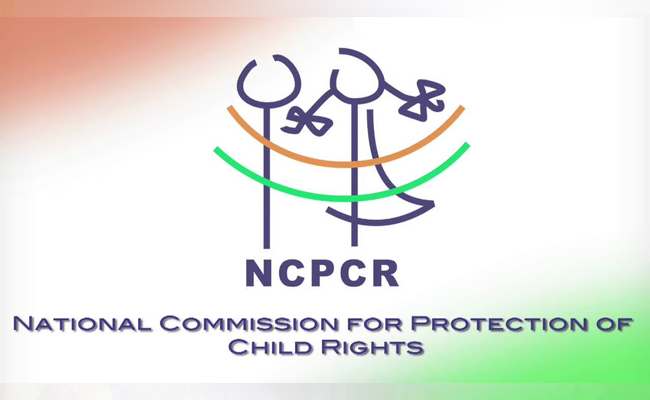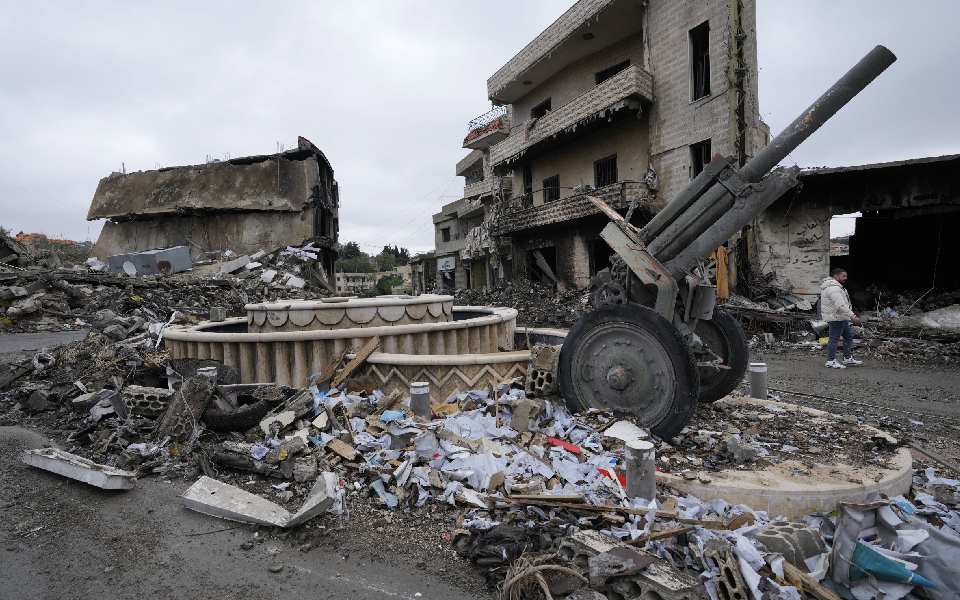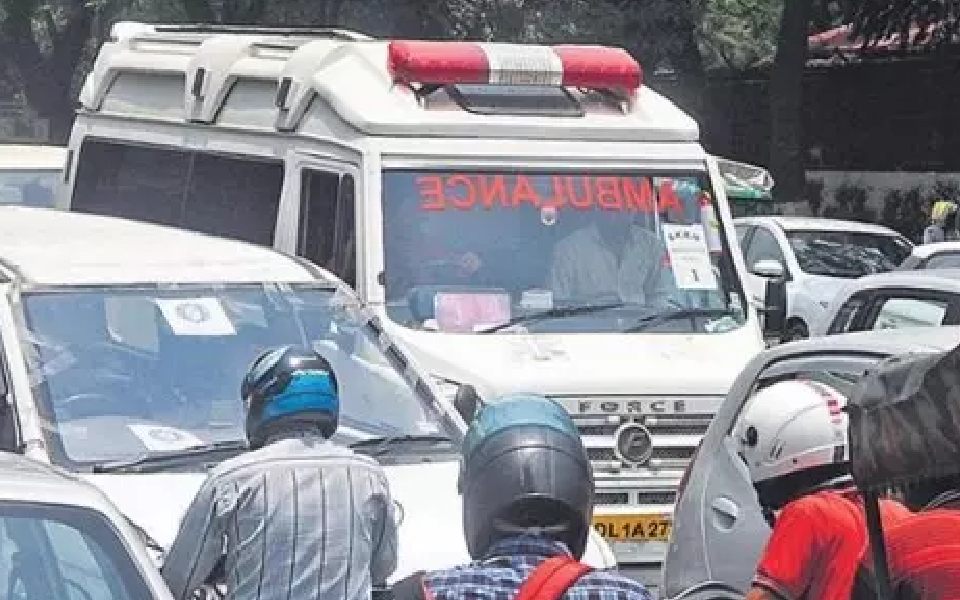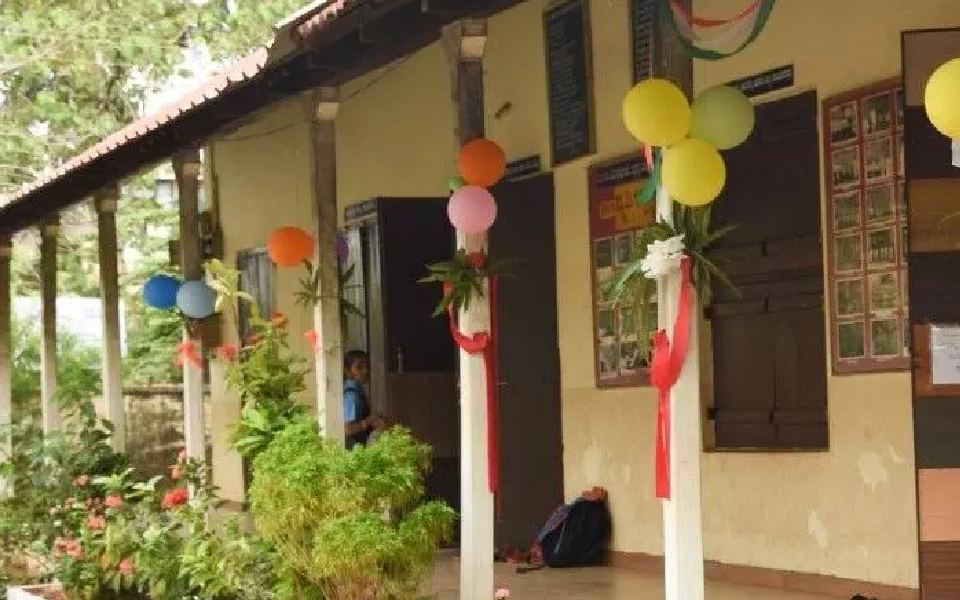New Delhi (PTI): Madrassas are "unsuitable" places for children to receive "proper education" and the education imparted there is "not comprehensive" and is against the provisions of the Right to Education Act, the National Commission for Protection of Child Rights (NCPCR) has told the Supreme Court.
The child rights body told the top court that children, who are not in formal schooling system, are deprived of their fundamental right to elementary education, including entitlements such as midday meal, uniform etc.
The NCPCR said madrassas merely teaching from a few NCERT books in the curriculum is a "mere guise" in the name of imparting education and does not ensure that the children are receiving formal and quality education.
"A madrassa is not only a unsuitable/unfit place to receive 'proper' education but also in absence of entitlements as provided under Sections 19, 21,22, 23, 24, 25, and 29 of the RTE Act," it said.
"Further, madrassas do not only render an unsatisfactory and insufficient model for education but also have an arbitrary mode of working which is wholly in absence of a standardised curriculum and functioning," the NCPCR said in its written submissions filed before the top court.
The child rights body stated that due to the absence of provisions of the RTE Act, 2009, the madrassas are also deprived of entitlement as in Section 21 of the Act of 2009.
"A madrassa works in an arbitrary manner and runs in an overall violation of the Constitutional mandate, RTE Act and the Juvenile Justice Act, 2015. It cannot be overlooked that a child getting education in such an Institution will be devoid of basic knowledge of school curriculum which is provided in a school.
"A school is defined under Section 2(n) of the RTE Act, 2009, which means any recognised school imparting elementary education. A madrassa being out of this definition has no right to compel children or their families to receive madrassa education," the NCPCR said.
It said most of the madrassas fail to provide a holistic environment to students, including planning social events, or extracurricular activities for 'experiential learning.
In a breather to about 17 lakh madrassa students, the apex court on April 5 had stayed an order of the Allahabad High Court that scrapped the Uttar Pradesh Board of Madarsa Education Act, 2004 calling it "unconstitutional" and violative of the principle of secularism.
Observing that the issues raised in the petitions merit closer reflection, a three-judge bench headed by Chief Justice D Y Chandrachud had issued notices to the Centre, the Uttar Pradesh government and others on the pleas against the high court order.
The top court said had the high court "prima facie" misconstrued the provisions of the Act, which does not provide for any religious instruction.
The high court had on March 22 declared the Uttar Pradesh Board of Madarsa Education Act, 2004, "unconstitutional" and violative of the principle of secularism, and asked the state government to accommodate students in the formal schooling system.
The high court had declared the law ultra vires on a writ petition filed by advocate Anshuman Singh Rathore.
It had said the state has "no power to create a board for religious education or to establish a board for school education only for a particular religion and philosophy associated with it."
"We hold that the Madarsa Act, 2004, is violative of the principle of secularism, which is a part of the basic structure of the Constitution," the high court had said.
The petitioner had challenged the constitutionality of the UP Madarsa Board as well as objected to the management of madrassas by the Minority Welfare Department instead of the education department.
Let the Truth be known. If you read VB and like VB, please be a VB Supporter and Help us deliver the Truth to one and all.
Beirut, Nov 28: The Israeli military on Thursday said its warplanes fired on southern Lebanon after detecting Hezbollah activity at a rocket storage facility, the first Israeli airstrike a day after a ceasefire between Israel and Hezbollah took hold.
There was no immediate word on casualties from Israel's aerial attack, which came hours after the Israeli military said it fired on people trying to return to certain areas in southern Lebanon. Israel said they were violating the ceasefire agreement, without providing details. Lebanon's state-run National News Agency said two people were wounded.
The back-to-back incidents stirred unease about the agreement, brokered by the United States and France, which includes an initial two-month ceasefire in which Hezbollah members are to withdraw north of the Litani River and Israeli forces are to return to their side of the border. The buffer zone would be patrolled by Lebanese troops and UN peacekeepers.
On Thursday, the second day of a ceasefire after more than a year of bloody conflict between Israel and Hezbollah, Lebanon's state news agency reported that Israeli fire targeted civilians in Markaba, close to the border, without providing further details. Israel said it fired artillery in three other locations near the border. There were no immediate reports of casualties.
An Associated Press reporter in northern Israel near the border heard Israeli drones buzzing overhead and the sound of artillery strikes from the Lebanese side.
The Israeli military said in a statement that “several suspects were identified arriving with vehicles to a number of areas in southern Lebanon, breaching the conditions of the ceasefire.” It said troops “opened fire toward them” and would “actively enforce violations of the ceasefire agreement.”
Israeli officials have said forces will be withdrawn gradually as it ensures that the agreement is being enforced. Israel has warned people not to return to areas where troops are deployed, and says it reserves the right to strike Hezbollah if it violates the terms of the truce.
A Lebanese military official said Lebanese troops would gradually deploy in the south as Israeli troops withdraw. The official spoke on condition of anonymity because they were not authorized to brief media.
The ceasefire agreement announced late Tuesday ended 14 months of conflict between Israel and Hezbollah that began a day after Hamas' Oct. 7, 2023 attack out of Gaza, when the Lebanese Hezbollah group began firing rockets, drones and missiles in solidarity.
Israel retaliated with airstrikes, and the conflict steadily intensified for nearly a year before boiling over into all-out war in mid-September. The war in Gaza is still raging with no end in sight.
More than 3,760 people were killed by Israeli fire in Lebanon during the conflict, many of them civilians, according to Lebanese health officials. The fighting killed more than 70 people in Israel — over half of them civilians — as well as dozens of Israeli soldiers fighting in southern Lebanon.
Some 1.2 million people were displaced in Lebanon, and thousands began streaming back to their homes on Wednesday despite warnings from the Lebanese military and the Israeli army to stay out of certain areas. Some 50,000 people were displaced on the Israeli side, but few have returned and the communities near the northern border are still largely deserted.
In Menara, an Israeli community on the border with views into Lebanon, around three quarters of homes are damaged, some with collapsed roofs and burnt-out interiors. A few residents could be seen gathering their belongings on Thursday before leaving again.





